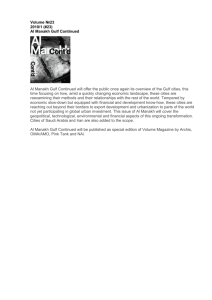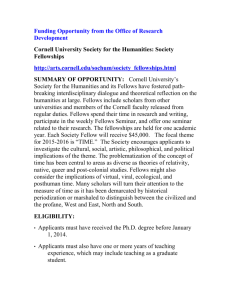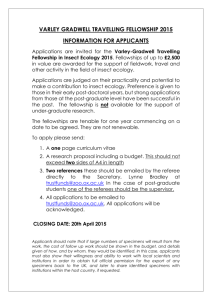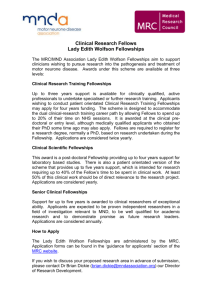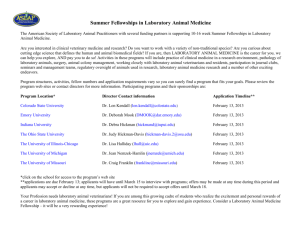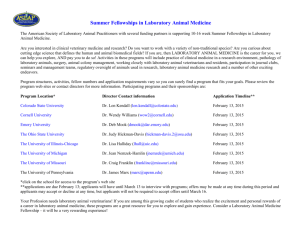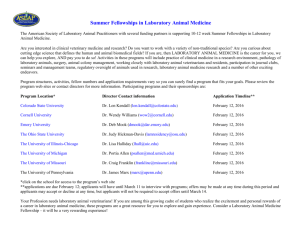Over its 30-year duration, the Gulf Research Program works to...
advertisement
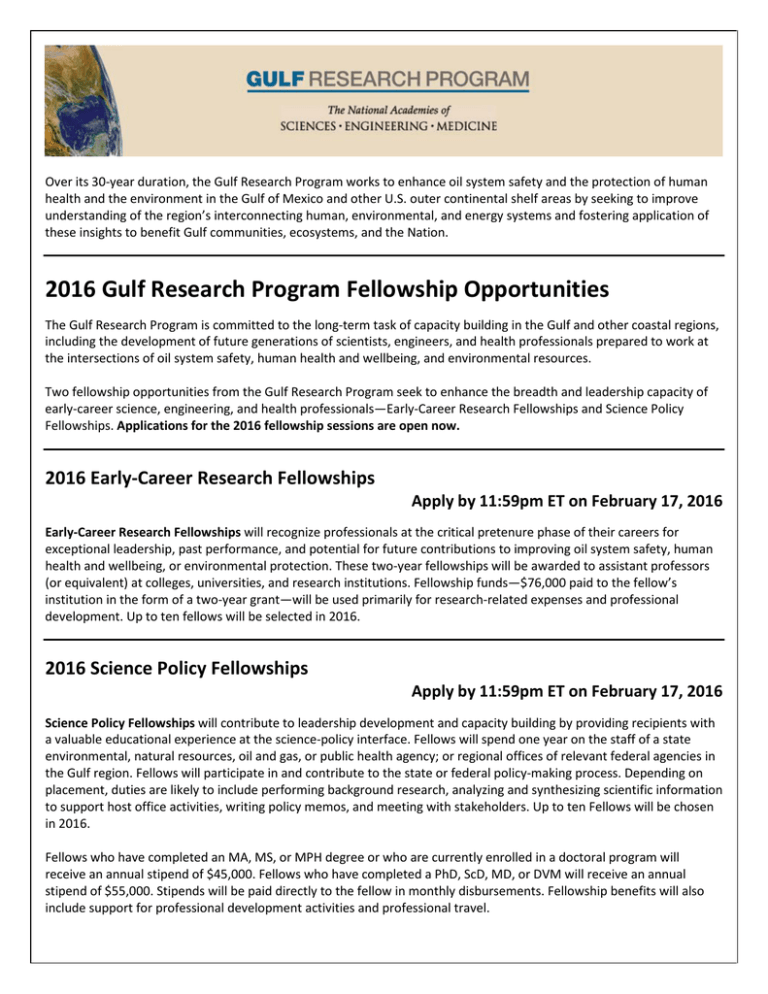
Over its 30-year duration, the Gulf Research Program works to enhance oil system safety and the protection of human health and the environment in the Gulf of Mexico and other U.S. outer continental shelf areas by seeking to improve understanding of the region’s interconnecting human, environmental, and energy systems and fostering application of these insights to benefit Gulf communities, ecosystems, and the Nation. 2016 Gulf Research Program Fellowship Opportunities The Gulf Research Program is committed to the long-term task of capacity building in the Gulf and other coastal regions, including the development of future generations of scientists, engineers, and health professionals prepared to work at the intersections of oil system safety, human health and wellbeing, and environmental resources. Two fellowship opportunities from the Gulf Research Program seek to enhance the breadth and leadership capacity of early-career science, engineering, and health professionals—Early-Career Research Fellowships and Science Policy Fellowships. Applications for the 2016 fellowship sessions are open now. 2016 Early-Career Research Fellowships Apply by 11:59pm ET on February 17, 2016 Early-Career Research Fellowships will recognize professionals at the critical pretenure phase of their careers for exceptional leadership, past performance, and potential for future contributions to improving oil system safety, human health and wellbeing, or environmental protection. These two-year fellowships will be awarded to assistant professors (or equivalent) at colleges, universities, and research institutions. Fellowship funds—$76,000 paid to the fellow’s institution in the form of a two-year grant—will be used primarily for research-related expenses and professional development. Up to ten fellows will be selected in 2016. 2016 Science Policy Fellowships Apply by 11:59pm ET on February 17, 2016 Science Policy Fellowships will contribute to leadership development and capacity building by providing recipients with a valuable educational experience at the science-policy interface. Fellows will spend one year on the staff of a state environmental, natural resources, oil and gas, or public health agency; or regional offices of relevant federal agencies in the Gulf region. Fellows will participate in and contribute to the state or federal policy-making process. Depending on placement, duties are likely to include performing background research, analyzing and synthesizing scientific information to support host office activities, writing policy memos, and meeting with stakeholders. Up to ten Fellows will be chosen in 2016. Fellows who have completed an MA, MS, or MPH degree or who are currently enrolled in a doctoral program will receive an annual stipend of $45,000. Fellows who have completed a PhD, ScD, MD, or DVM will receive an annual stipend of $55,000. Stipends will be paid directly to the fellow in monthly disbursements. Fellowship benefits will also include support for professional development activities and professional travel. Eligibility Eligibility Criteria for Gulf Research Program Fellowships: • The fellowships will be awarded to applicants whose research/work relates to the mission and objectives of the Gulf Research Program (available at www.nas.edu/gulf/about). • Areas of research/study may include social and behavioral sciences, health and medicine, engineering, earth and life sciences, or relevant interdisciplinary fields. • Applicants must be a U.S. citizen, U.S. national, lawful permanent resident, or an individual granted deferred action status under the Department of Homeland Security Deferred Action for Childhood Arrivals Program. • Federal employees are not eligible for the fellowships. Additional Eligibility Criteria for the Early-Career Research Fellowship: • Applicants must hold an Assistant Professor position (or equivalent) at a college, university, or research institution. • Applicants must not receive tenure before September 1, 2016. • Applicants must identify a senior-level faculty member at their affiliated institution willing to serve as a career mentor. • Applicants must be affiliated with a U.S. institution that has a valid tax ID number. Additional Eligibility Criteria for the Science Policy Fellowship: • Doctoral students and those who received their graduate degree on or after September 1, 2011 are eligible to apply. Eligible degrees include MA/MS, PhD, ScD, MPH, MD, or DVM. Applicants currently enrolled in a doctoral program must be prepared to take a leave of absence from their graduate program during the fellowship period (September 1, 2016 – August 31, 2017). • Applicants are not required to have direct public policy experience but should have a demonstrable interest in applying science to public policy. The following will be considered as positive factors in choosing successful applicants: • Evidence of a strong scientific and technical background and superior scholarship • Demonstrated verbal and written communication skills • Demonstrated leadership experience • Membership in one or more groups that are traditionally underrepresented in the applicant’s scientific discipline • Experience working in an interdisciplinary field or participating in interdisciplinary collaborations To Learn More or Apply To learn more or apply, visit www.nas.edu/gulf/fellowships. Questions? Email GulfFellowships@nas.edu. You can sign up to receive periodic email updates about deadlines and future funding opportunities at www.nas.edu/gulf/funding. Photo credit (reverse): SeaWiFS Project, NASA/GSFC, ORBIMAGE
